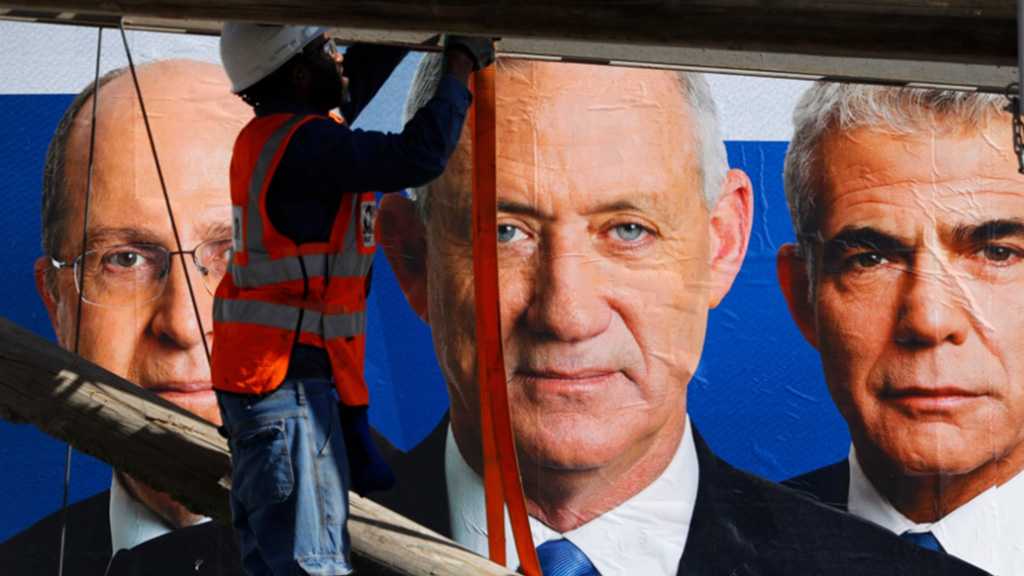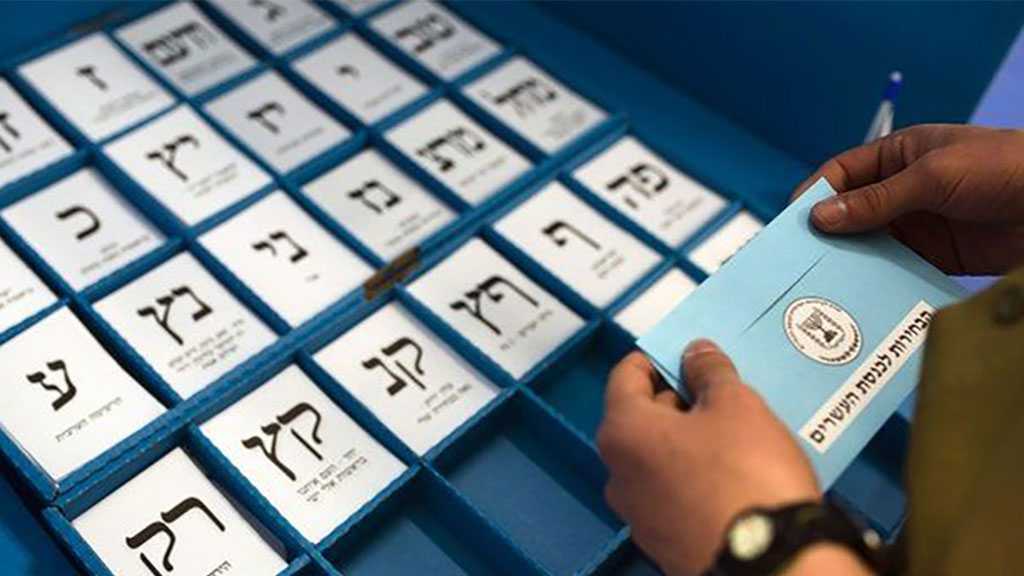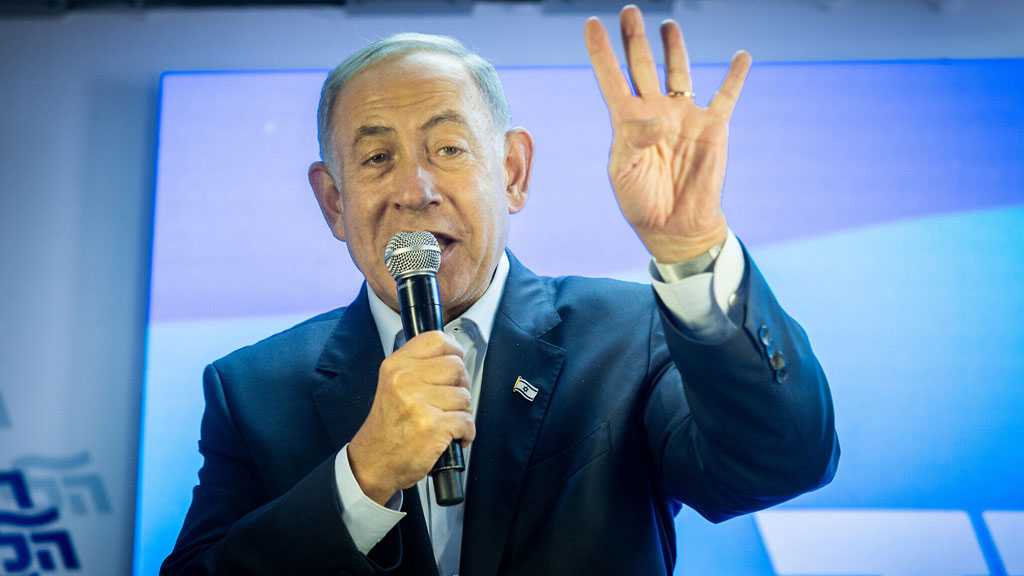Financial & Arms Lobbies: “Israel’s” Number One Voter

By Qassem Qassem for Al-Akhbar Newspapar – Translated by Staff
Despite the narrative being promoted about the “perfection” of “Israel’s” democratic model, the reality is quite different.
Powerful lobbies linked to banks and the military industrial complex are exerting a great deal of influence on party primary elections, which determine the winners and losers in the Knesset. This influence is controversial and is matched by the parties’ pursuit to appease sectors that employ the highest number of party members.
The “Israeli” enemy is constantly promoting itself as the "only democracy in the Middle East", while Western countries, led by the United States, use this propaganda to justify support for Tel Aviv in this "dark East". But on the ground, “Israel” is not nearly as transparent as is being claimed. Its elections are not free of corruption and favoritism – traits often attributed to Arab countries. The fact is that in the Jewish entity, large companies and the dominant military sector are pushing their candidates to succeed in the party primaries. They also play a large role in the rise or fall of Knesset members, depending on how beneficial their performance is.
Companies, the industrial sector and banks exploit the period of the “Israeli” party primaries to bring down candidates they do not want. At this stage, which precedes the general elections, the party's candidates are elected directly by its members [closed primary]. They are placed on a list or the party’s slate, made up of 120 names, which is also the number of Knesset seats. This arrangement is required, according to the electoral system, on the grounds that if a party gets enough votes for ten seats, the top 10 candidates on the primaries list/slate enter the Knesset. If a member of parliament dies or abandons his seat, the next person on the list replaces him. It is worth mentioning here that “Israeli” entity inherited this electoral process from the political system used by Jewish settlers during the British Mandate. It was adopted to maximize the representation of the new occupiers in the historic land of Palestine and enable them to participate in governing. As for the religious parties, their spiritual leadership determines their candidates for the elections.
“Israeli” companies and banks begin exerting their influence during the primaries. They work to ensure that the “ones who invoked anger” are not among the top ten, thus preventing them from entering parliament. During the recent Likud and Labor party primaries, the pressure from companies and banks became apparent in the rise of some candidates and the fall of others who were considered to be the stars of their parties. However, the performance of these stars during the past Knesset term and their opposition to some companies caused their downfall and made it impossible for them to secure a top spot on the party’s list. On February 13, 2019, leaders in the “Financial Justice - Citizens for Integrity, Competition and Transparency in the Banking System” Association, Barak Gonen and Harel Primak, wrote an article published by the Seventh Eye website. In it, they explained why Labor Knesset member Eitan Cabel lost a guaranteed spot on the party’s list. Cabe’s loss was attributed to his role as chairman of the Knesset Economic Affairs Committee, where he enacted a law imposing restrictions on tobacco advertising.
The banks’ intervention in the primaries also resulted in Labor Knesset member, Ayelet Nahmias-Verbin, who helped form the Fishman Committee, not running in the elections. She knew that it would be impossible for her to win a top spot. Her colleague Yossi Yona was one of the most vocal backers of a law that sought to increase competition in the banking system. She was attacked by banks and came in 21st on the Labor slate. This spot never carries guarantees, especially since the latest opinion poll showed that the Labor party would only secure eight seats. On the other hand, MK Itzik Shmuli, who won the Labor party’s top spot, is the banks’ favorite. He was one of the leaders of the 2011 social protests. After the protests, he received donations from business tycoon Nochi Dankner and Hapoalim Bank. According to Primak and Gonen, Shmuli “did not participate in the deliberations of the reform committee (in the Knesset) which discussed the reduction of monopolies in banks even though he was a member in it.” During a session in the Finance Committee (in the Knesset), “Shmuli helped banks turn public criticism into control. He also helped them criticize those who asked them for changes in their banking policy.”
In the Likud, most of the candidates worked to provide services for the large companies that employed their members. The most prominent example of this was the work done by the Minister of Intelligence and Minister of Transportation, Yisrael Katz, who prevented Uber from entering the Ben-Gurion Airport to please Likud members working as taxi drivers there, who receive higher wages compared to Uber. He ranked third in his party’s slate. Minister of Welfare, Haim Katz, came in 15th place in the same slate. His office director, Eti Attiya, was on the same list. According to the State Comptroller's report, she is accused of receiving a salary (bribe) from an aviation manufacturer, although she did not work there. Karen Barak came in 26th place (polls predict that Likud will win 28 seats). She previously worked in the Knesset for the cigarette, telephone, insurance and oil companies. As for the most prominent "Temple [Mount] activist", right-wing MK Yehuda Gilek, he remained out of the list because of his opposition to these industries and his insistence on raising the legal age limit for the sale of cigarettes.
Corruption is not confined to the influence of large corporations and banks on the primaries. It also involves the parties themselves seeking to satisfy the sectors, which include the largest number of their members. For example, during the primaries, current Prime Minister Benjamin Netanyahu used the votes of the Likud members working at the entity-owned aviation manufacturer, ‘Israel’ Aerospace Industries (IAI), to prevent Gideon Saar from securing second place in the party's slate (there is no competition on the first place since Netanyahu is the party leader and he automatically occupies it). Netanyahu feared that Saar would be assigned to form a government instead of him.
The “Israeli” website Globes revealed that "more than half of the 15,000 workers at IAI joined Likud because of the activities of Industry Minister Haim Katz, who led the company's trade union for 22 years. Netanyahu feared a close alliance between the poles of his party, Saar and Katz.”
Referring to Netanyahu's interest in IAI, Globes spoke of his repeated visits to the company over the past months. "Netanyahu's interest in the aviation manufacturer is to derive the interests of thousands of workers who joined the ranks of the party to attempt to eliminate potential cooperation between Katz, whose political power is derived from the aviation manufacturer and Saar," a source in the Likud said.
Netanyahu's attempts to attract aerospace industries workers are not limited to his visits to the company, but include USD 3.5 billion worth of military deals with India, which are focused on the aerospace industry. Since he took over as [war] minister last November, Netanyahu has sought to cancel the ban on an IPO by former minister, Avigdor Lieberman, which the company's officials rely on to raise funds for the development and strengthening of the company.




